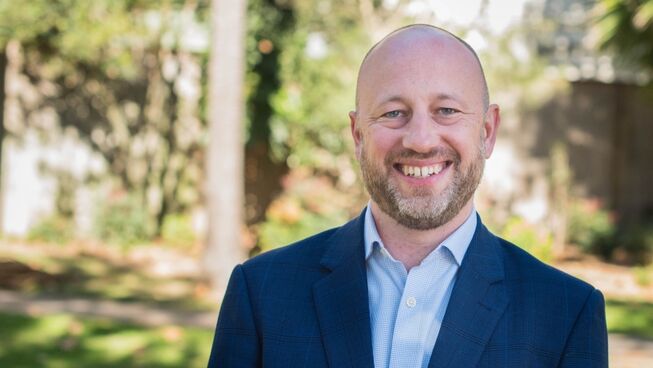Loneliness in the workplace

For those who have never had an experience of it, it may seem hard to fathom. But for many people, one of their most lonely places in the world is sitting at a desk in a crowded office, or in a large zoom meeting. Despite people bustling around, occasional idle chat with colleagues, frequent business interactions on the phone, in digital comms platforms, in person, or via email, nevertheless loneliness is a constant for many people in the workplace. As one anonymous author writes, “For 45 to 50 hours every week, I feel isolated".*
And many people is not an exaggeration. According to one report** 42% of people say that they do not have a close friend at work. Not having a close friend does not necessarily equal loneliness…although it often does. And those most affected can often times be men, indeed as one article explains, “The biggest threat facing middle-age men isn’t smoking or obesity. It’s loneliness".***
That their employees are lonely might not concern the average boss. But another recent report into loneliness has led a number to sit up and take note. According to a study by Wharton School of Business and California State University, loneliness at work has a “significant influence on employee work performance".**** In other words, loneliness impacts productivity. And that is something that employers do care about.
The solutions offered to businesses are many and varied, and to be honest, quite frequently pretty trite. Everything from removing office furniture that creates isolation (like cubicles), introducing office yoga and masseuses to boost interaction between employees, and learning to break the ice “with casual small talk…a simple ‘Hi’".` As our anonymous author writes in response to this suggestion, “As if that is a relationship builder, rather than something done by all but the most sociopathic". I couldn’t agree more.
The root of the problem
But like all problems, getting to the root cause is the only way of ever being able to provide a genuine, hopeful solution. And as you read through many articles about workplace loneliness you begin to notice a recurring theme. Writing in the Harvard Business Review, Gianpiero Petriglieri admits to “the fear of being myself at work – or more precisely, the uncertainty about which self to be".`` Taking it one step further, another author diagnoses the problem like this: “Displaying emotions at work is not the social norm in society. People are afraid of appearing weak, and therefore cloak themselves in order to avoid judgement".``` In short, we put on masks to cover our weaknesses, and in doing so prevent genuine friendships from developing, because, as C.S. Lewis wrote, “naked personalities" are necessary for friendship. And without deep friendship we are lonely.
Putting on a mask to cover up weakness happens in many different ways. It can be as simple as refusing to acknowledge the need for help when struggling with a project. It can be keeping personal trials and difficulties hidden from colleagues and employers out of fear that they might use that knowledge against you. Or on the flipside, it can look like over-confidence, constantly overselling our abilities and our role, and then having the pressure of having to live up to false expectations. The end result is that your colleagues don’t know the real you, just a confident, seemingly have-it-all together version of you.
How to remove the mask
So what enables us to remove the mask? Only the Gospel. A Gospel that is real about who we are: “There is no one righteous not even one” (Romans 3:10). “The mask you wear before men will do you no good before Him".```` A Gospel that makes known to us the only One who never wore a mask, but was perfectly righteous and sinless (1 Peter 2:22). And a Gospel that having removed the mask, revealing our true selves, does not leave us exposed, but rather clothes us in the achievements (righteousness) of Christ: “For all of you who were baptised into Christ have clothed yourselves with Christ” (Galatians 3:27). Far from this being another mask covering up our true identity, this is now our true identity! This is who we are; a broken one made righteous.
How does this help us with friendships in the workplace? Simply that we can have the confidence to be our new, true selves. We can admit our ongoing weakness and failure knowing that it is true also of the person that we are admitting it to. But we can also be confident in our new identity in Christ, a greater identity than any mask we might try and manufacture for ourselves. We can be real.
Being like this in the workplace not only opens us up to friendship. But it also is likely to attract the lonely to us. It paves the way for us to be what the lonely desperately need, but cannot find in their mask wearing colleagues; a genuine friend. And in so doing we display something of Christ, the ultimate friend of sinners (Luke 7:34).
==================
* https://www.theguardian.com/commentisfree/2016/feb/01/loneliness-at-work-introvert-sadness-bereft-in-bustling-office
*** http://www.bostonglobe.com/magazine/2017/03/09/the-biggest-threat-facing-middle-age-men-isn-smoking-obesity-loneliness/k6saC9FnnHQCUbf5mJ8okL/story.html?event=event25
**** https://faculty.wharton.upenn.edu/wp-content/uploads/2012/05/Work_Loneliness_Performance_Study.pdf
` http://www.projecteve.com/how-to-combat-loneliness-and-isolation-in-the-workplace/
`` https://hbr.org/2014/03/why-work-is-lonely
``` http://www.huffingtonpost.com/gurdeep-pandher/loneliness-in-the-workplace-symptoms-and-solutions_b_8210946.html
```` Dietrich Bonhoeffer, Life Together, 101








